Nintendo’s ‘Legend of Zelda’ Movie Is Already Raising Red Flags
- Oops!Something went wrong.Please try again later.
- Oops!Something went wrong.Please try again later.
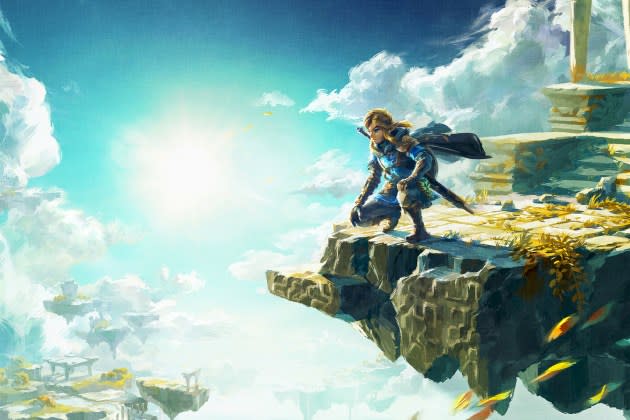
Well, they finally did it. After a supposed decade in the works and 35 years of fans imagining what a movie would look like, Nintendo has officially willed a feature film adaptation of The Legend of Zelda into existence. Yet what should have been cause for celebration was met with a thud.
But why? As we’re entering what looks to be the dawn of Hollywood’s video game takeover, you’d think that news of a Zelda movie would be a shoo-in. Riding high off their billion-dollar Super Mario Bros. movie, Nintendo seems game to begin making fantasies a reality on the big screen, yet it appears – in true Hollywood fashion – they’ve learned the wrong lessons.
More from Rolling Stone
As reported by Deadline, and confirmed in an official Nintendo press release, the film will be co-financed and distributed by Sony Pictures. The irony of this shouldn’t be lost, as Nintendo’s infamous backstabbing of Sony in the Nineties directly led to the launch of the PlayStation, dethroning the Big N in Machiavellian fashion for a decade until the Wii waggled their way back into relevance. But alas, it seems the two Japanese-based companies have made up and, to their credit, Sony has been leading the charge into entertainment with PlayStation Productions producing work both lauded (The Last of Us) and lukewarm (Uncharted, Gran Turismo). So, what’s the issue?
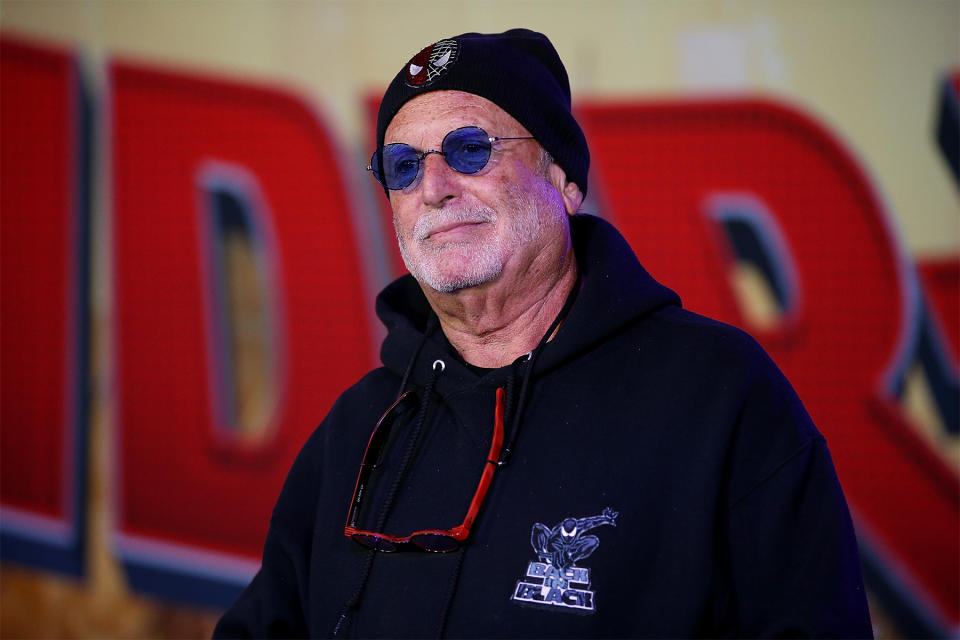
THE TRIFORCE OF MID
Firstly, the Sony connection immediately brings to the table house producer Avi Arad who, despite having a storied career, instantly raised eyebrows. Touted by Zelda creator Shigeru Miyamoto as “[having] produced many mega-hit films” in an instantly memed social post, Arad is an obvious choice to kickstart a new blockbuster franchise. And the sentiment is true, with caveats. Arad is credited with ushering in the modern age of superhero films, beginning with executive producing the trifecta of 1998’s Blade, 2000’s X-Men, and 2002’s Spider-Man, as well as playing a central role in the creation of Marvel Studios. Yet, for every X-Men or Spider-Man, there’s an X-Men: The Last Stand or Spider-Man 3. This is the man who recently brought us Morbius.
But giving the producer the benefit of the doubt, there’s even more room for pause with the film’s writer, Derek Connolly. Connolly is most famous for co-writing the Jurassic World trilogy, as well as a shelved version of Star Wars: The Rise of Skywalker. No one can say if that film would’ve been any good in the alternate reality where it ended up on screens, but as it stands the writer is 0-for-3 on the “movies that make sense” spectrum.
Lastly, there’s director Wes Ball, which might actually be the most confusing part of the equation. Despite the internet’s perception of them, both Arad and Connolly have made hits, which is likely what drew Nintendo and Miyamoto to them in the same way they were drawn to Minions masters Illumination to bring Super Mario Bros. to the big screen. But remember, although many liked that film despite its slightness, it was mostly met with mixed reviews (and mountains of cash). As a director, Ball has a limited résumé, having only directed the YA novel-inspired Maze Runner trilogy, as well as the forthcoming Kingdom of the Planet of the Apes, a movie nobody remembered was even in production. If that film can even remotely approach the somber blockbuster finesse of the Matt Reeves films, there could be hope. But so much is unknown, and in true Nintendo fashion, further details are likely a few years away.
Kneejerk reactions aside, what can fans expect from the film? That too comes with infinite variables. The Legend of Zelda is a difficult series to even explain to the uninitiated, let alone adapt into a feature film. But here’s what one can hope for, and what Nintendo needs to avoid.
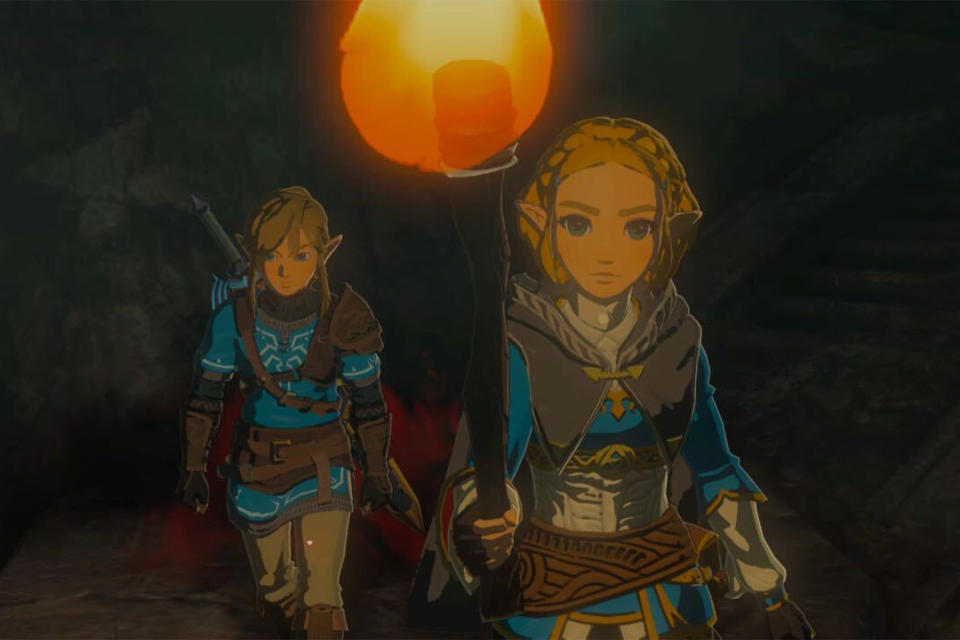
THE LEGEND
The first and most obvious sticking point is which game to adapt or draw inspiration from. Despite Nintendo’s general philosophy that story comes second to gameplay, Zelda has a surprisingly deep (and confounding) lore. On the surface, it appears simple. There’s a hero, Link, who is generally depicted as a young elven-eared boy who gets swept up in a journey to save the kingdom of Hyrule from the evil Ganon. Usually, there’s a princess named Zelda (surprise!), who either plays the damsel or a subversively integral part of the plot. There are MacGuffins to grab and fantasy swashbuckling abound. Seems clear, right? The reality is deeper than that.
The actual story of Zelda – ambiguous and contorted as it may be – is that the trio of Link, Zelda, and Ganon are stuck in a cycle of endless reincarnation, eternally bound in a conflict designed by the gods. Every game, direct sequels aside, is a different incarnation of the cast living their lives until once again burdened with glorious purpose to be drawn back into the endless cycle. The timeline(s) span thousands of years, with some games (Skyward Sword) set at the beginning and others (Breath of the Wild, Tears of the Kingdom) at the end. And yes, that’s timelines plural. The story branches off in some depressing ways depending on whether Link canonically succeeds, dies by Ganon’s hand, or somewhere in between. There’s a bizarre fatalism to the narrative that could be intriguing, should the powers-that-be opt to capitalize on it.
That said, the biggest concern that fans have is that there’s simply too much to choose from. Many (me included) have always insisted that the best way to adapt Zelda would be as a TV series to allow for the story to breathe, as well as take advantage of the reincarnation cycle to tell new stories between seasons. But if it must be one story, the options become limited. The most obvious solution would be to jump straight to the end of the timeline with 2017’s Breath of the Wild. The most popular entry in the franchise ever with over 30 million units sold, Breath of the Wild has the luxuries of not just being thematically rich and the freshest in people’s minds, but it also has the runway for sequels with its successor, Tears of the Kingdom, not only continuing its story but besting it. It also carries with it a somber undercurrent of tragedy that could play well with Wes Ball, given that all his work thus far has centered around apocalyptic scenarios and world-building.
Now, purists might argue that Breath of the Wild eschews most of the iconography and tropes that the first thirty years of Zelda established, but it gets enough right that it really shouldn’t be an issue. It’s this generation’s Zelda; deal with it. In the end, the most likely scenario is that Nintendo decides to pull inspiration from multiple games in a remixed chimera.
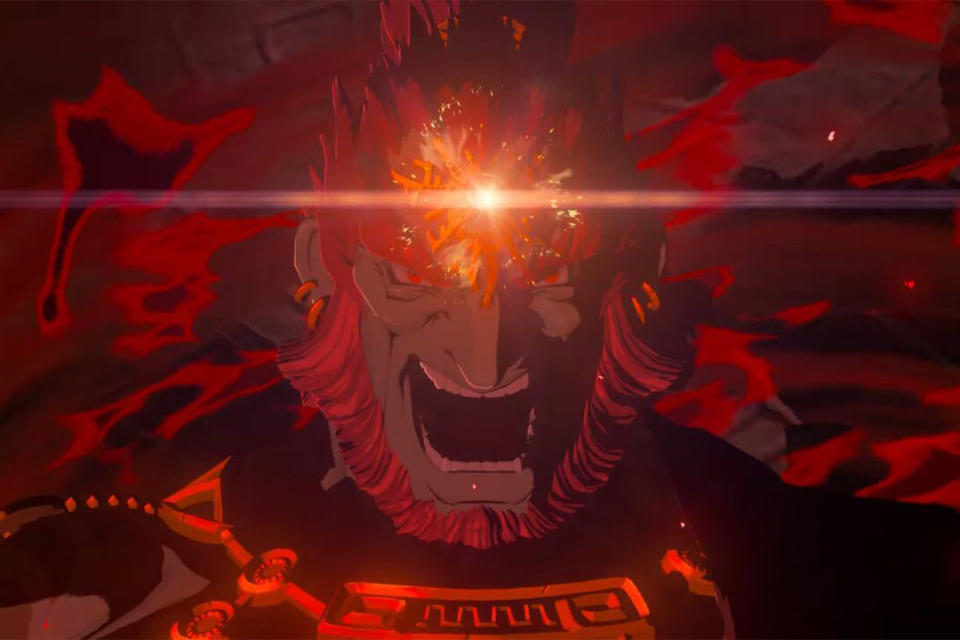
THE PLAYERS
Story aside, the most talked-about topic in Zelda movie speculation is going to be the casting. It’s no secret that the series’ Nineties opus Ocarina of Time had an adult Link that was clearly modeled after heartthrob Leonardo DiCaprio. That game also introduced the human form of Ganon dubbed Ganondorf that was a dead ringer for a jacked Jeff Goldblum. Outside of that, there’s very little to go off in terms of casting.
Link is generally depicted as somewhat androgynous, which has led to tons of fan-casting around actors like Euphoria’s Hunter Schafer (for both Link and Zelda). Others have taken the easy bait with picks like ubiquitous shy-boy Timothée Chalamet or Sony’s golden boy Tom Holland. One strong contender could be Game of Thrones alum Thomas Brodie-Sangster who, as Variety points out, has already worked with director Wes Ball in The Maze Runner series. The biggest hurdle will be finding someone who can imbue the role with a sense of boyish melancholy, and can be charismatic without speaking given that Link has always been a voiceless, “voluntarily” mute protagonist.
On the flip side, there’s a real opportunity to right past wrongs in the franchise by giving the actress who embodies Zelda something to do. For a character who bears the series’ namesake, Princess Zelda is often relegated to the sidelines, whether it’s as a damsel to be saved or a regal figure on a pedestal divorced from the heroics. Later games like Breath of the Wild and especially Tears of the Kingdom give her more agency but there’s one game where she truly shines: 2002’s The Wind Waker. Depicted as a pirate with an in-your-face attitude, it’s this version of Zelda that should inspire the live-action role. Imagine a more Romancing the Stone dynamic between the leads, which should entice Nintendo, whose recent Super Mario Bros. movie placed Princess Peach in a similarly empowered position. For this, Gen V breakout Lizzie Broadway could easily deliver a headstrong, wryly emotional take on the princess.
Most importantly, there’s the villain. Every good fantasy tale lives or dies on its villain and nailing Ganon (and by proxy Ganondorf) is going to be the greatest feat. After returning to the franchise with this year’s Tears of the Kingdom, voiced by thirst-trap Ganon Daddy and Critical Role dungeon master, Matthew Mercer, the key to bringing Ganondorf to life will be balancing sexy menace and scenery-chewing. Early reactions point toward the perpetually fan cast Idris Elba, or even Jason Momoa, whose breakout role as Khal Drogo could be a great starting point, with a slight uptick in verbosity. The real concern will be the tightrope walk of handling a character who, in game, is part of a desert-dwelling clan of thieves clearly inspired by Middle Eastern tropes, without backsliding into stereotyping. Whoever is picked, this is likely a role that belongs to a big name to prop up any lesser-known stars that might end up occupying the leads.
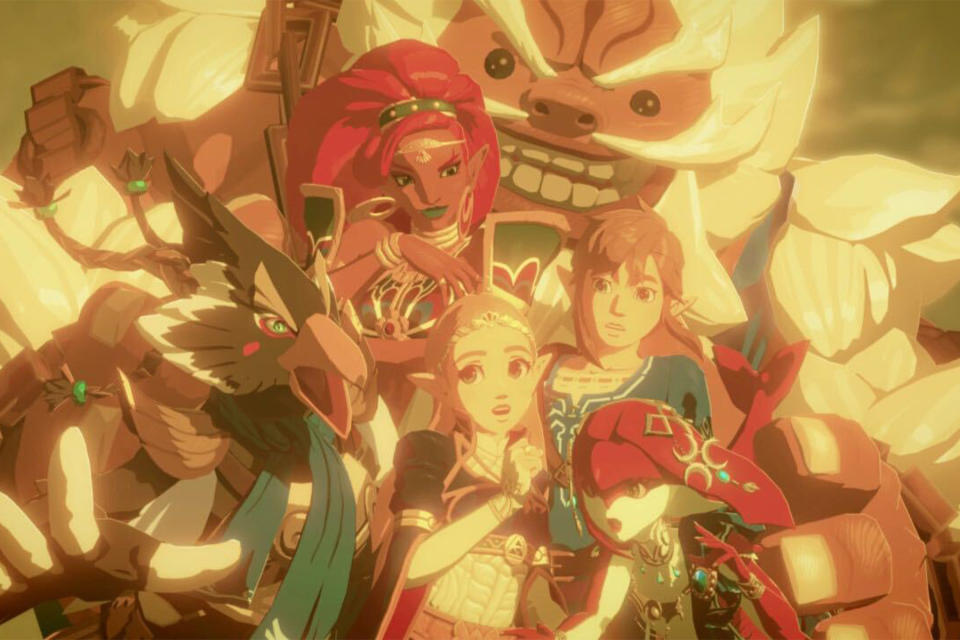
THE TONE
One final point to ruminate on is related to the story, but vital enough to warrant its own discussion, and that’s the tone. The Legend of Zelda is many things – a fantasy epic, a coming-of-age story, a sometimes paradox-inducing time-travel knot – but at its core it’s always decidedly weird. Nintendo is not a company defined by great creative risks in its storytelling. Most iterations of its hallmark franchises follow simple formulae and stick to minimalist (at best) narratives. Zelda is no different, but part of its secret sauce has always been that it’s Nintendo’s playground for its developer’s stranger impulses.
Buried within the hero’s journeys is an undercurrent of sadness. After all, these characters are all cyclical victims of fate. But it’s also fertile ground for subtext. Link, often androgynous, has been called queer-coded by many, regularly and lovingly depicted in fan art as a twink. There’s a full-grown man who rides the skies dangling from balloons named Tingle. There are races of bird people, fish people, rock people, all living in various states of harmony against oppression. The series has never shied away from being subtly off-kilter, or downright nightmarish. Its first Game Boy outing took place in a dream state, openly inspired by David Lynch’s Twin Peaks. Cult favorite Majora’s Mask is set in a hellscape where its denizens are unsettlingly calm about the fact that the literal moon is falling and will kill them all. The joy of Zelda, and what gives it the potential to elevate it beyond vanilla fantasy schlock, is the marriage of swords n’ sorcery with a slightly twisted, albeit still family-friendly skew on what traditional fantasy can be.
For fans, that’s all we can ask for: keep Zelda weird. There’s no room for half measures in the story of a time-traveling elf boy hunting down a demon pig.
Best of Rolling Stone

